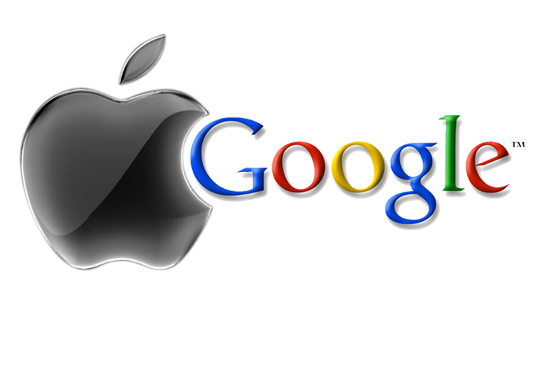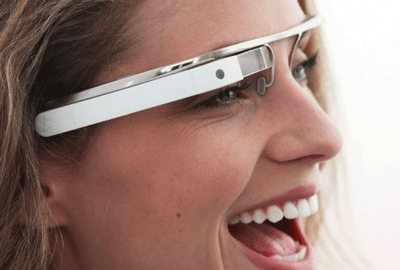“Project Glass” Is Just the Beginning
As we mentioned last week, Google unveiled “Project Glass,” the latest concept to come out of the company’s X Lab. The augmented reality eyewear is equipped with an integrated transparent display that will project images and data in the wearer’s field of vision. And, as expected, the project has resulted in a wide range of responses, from enthusiastic to apprehensive.
Whatever the mindset, the competition has taken note. After several meetings with supply chain companies in China and Taiwan, Topeka Capital markets analyst Brian J. White wrote in a letter to investors that “Project Glass” already has “competitors working on similar initiatives to improve consumer’s mobility around Internet access.” There is nothing confirmed yet on who these “competitors” are (or what their products will look like), but news like this shouldn’t be a surprise. What we do know is that the future of mobile technology is no longer a question of if but when. White reiterated this point: “We expect to hear more about projects such as this and others in the coming years. This could drive a new wave of innovation across the mobility space.” However, the title of Google’s “Project Glass” video was “One day…” after all, so I’m hesitant to believe that we’ll be seeing any Glass headsets on shelves by the end of the year.
Whenever the product is released, Project Glass, as a concept, is a giant step for Google to grab an audience outside software junkies. Android has been a goldmine amongst engineers due to its open software, but what about teenage girls? They wouldn’t be caught dead without an Apple iPhone in their hands. With Project Glass, as Fast Company’s Mark Wilson has proposed, Google “could bring in a new wave of designer manufacturers, too.” If Google opens up Project Glass as a hardware kit than any company could utilize the software. As Wilson added, “Instead of HTC, Motorola, and Samsung, we could buy Google products designed by Ray-Ban, Fendi, and Gucci.” And while Brin may have looked like Star Trek’s Geordi La Forge when he stepped out in a prototype last week, you bet your latest Apple product that if Google opens up the software everyone from software geeks to runway models will be wearing Glass.
 Apple has consistently proven this past decade that, while innovations in engineering inspire, style sells. And while Google has been chasing after Steve Job’s funhouse since the introduction of the iPhone, with Project Glass the search engine giant may have finally regained its footing. History has illustrated that tech companies need to constantly reinvent themselves to grow (and please shareholders), and Google is doing just that. With Glass’s innovational use of voice recognition, computer literacy will be a thing of the past. Typing has always been a barrier between thought and communication, and with Glass our own voice will be a “new” language for communicating with technology. We will be able stream a YouTube cooking video while assembling the dish, hands-free. We will be able to write an e-mail while jogging. As Money Morning Defense and Technology Specialist Michael A. Robinson said, “It puts high-tech developments usually reserved for the military in the hands of consumers. It’s just one of the latest inventions from big-cap names like Google that will help define the next era in technology.”
Apple has consistently proven this past decade that, while innovations in engineering inspire, style sells. And while Google has been chasing after Steve Job’s funhouse since the introduction of the iPhone, with Project Glass the search engine giant may have finally regained its footing. History has illustrated that tech companies need to constantly reinvent themselves to grow (and please shareholders), and Google is doing just that. With Glass’s innovational use of voice recognition, computer literacy will be a thing of the past. Typing has always been a barrier between thought and communication, and with Glass our own voice will be a “new” language for communicating with technology. We will be able stream a YouTube cooking video while assembling the dish, hands-free. We will be able to write an e-mail while jogging. As Money Morning Defense and Technology Specialist Michael A. Robinson said, “It puts high-tech developments usually reserved for the military in the hands of consumers. It’s just one of the latest inventions from big-cap names like Google that will help define the next era in technology.”
While there are critics who believe Glass will never see the light of day, let’s remember how crazy smartphones and tablets once sounded. Or how mobile advertising, still relatively new, accounts for around a third of Google’s overall value. And Project Glass may just be the first step; who’s to stop Google from utilizing bionanotechnology and producing a consumer contact lens with embedded electronics to transmit information directly to a person’s eye? The future may not be here now, but Google is steering the ship.



 Canada
Canada